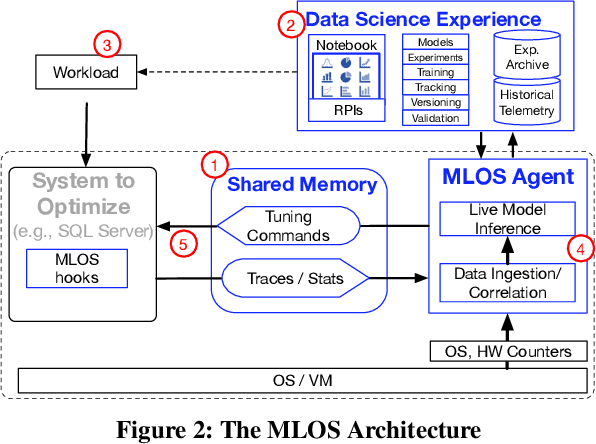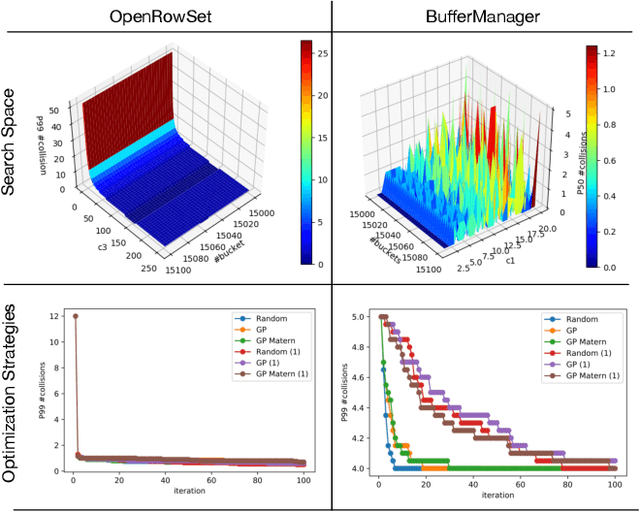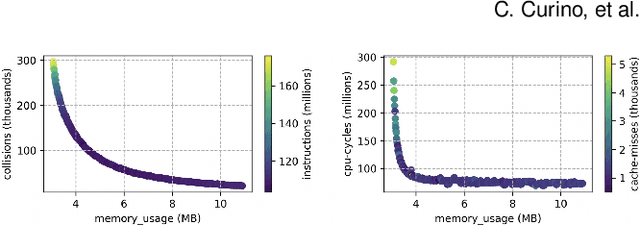Neha Godwal
MLOS: An Infrastructure for Automated Software Performance Engineering
Jun 04, 2020



Abstract:Developing modern systems software is a complex task that combines business logic programming and Software Performance Engineering (SPE). The later is an experimental and labor-intensive activity focused on optimizing the system for a given hardware, software, and workload (hw/sw/wl) context. Today's SPE is performed during build/release phases by specialized teams, and cursed by: 1) lack of standardized and automated tools, 2) significant repeated work as hw/sw/wl context changes, 3) fragility induced by a "one-size-fit-all" tuning (where improvements on one workload or component may impact others). The net result: despite costly investments, system software is often outside its optimal operating point - anecdotally leaving 30% to 40% of performance on the table. The recent developments in Data Science (DS) hints at an opportunity: combining DS tooling and methodologies with a new developer experience to transform the practice of SPE. In this paper we present: MLOS, an ML-powered infrastructure and methodology to democratize and automate Software Performance Engineering. MLOS enables continuous, instance-level, robust, and trackable systems optimization. MLOS is being developed and employed within Microsoft to optimize SQL Server performance. Early results indicated that component-level optimizations can lead to 20%-90% improvements when custom-tuning for a specific hw/sw/wl, hinting at a significant opportunity. However, several research challenges remain that will require community involvement. To this end, we are in the process of open-sourcing the MLOS core infrastructure, and we are engaging with academic institutions to create an educational program around Software 2.0 and MLOS ideas.
 Add to Chrome
Add to Chrome Add to Firefox
Add to Firefox Add to Edge
Add to Edge